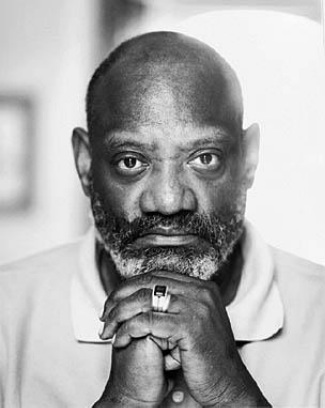 Darcus Howe Darcus Howe Tags: class, crime/law/deviance, discourse/language, goffman, government/the state, inequality, knowledge, media, race/ethnicity, social mvmts/social change/resistance, theory, violence, collective action frames, politics of signification, 00 to 05 mins Year: 2011 Length: 4:24 Access: YouTube Summary: What shall we name what is happening in London? While investigating gun crimes, police shot and killed Mark Duggan, a 29 year-old Black man who was carrying a loaded gun (though it should be said, he never fired the weapon on police). Catalyzed by Duggan's death, protests, looting, and destruction of public and private property have rapidly spread across London. Is it a riot, an uprising, a rebellion, a social movement, or is it an insurrection? Whatever frame we choose has important consequences for the shape of things to come. For instance, the word riot suggests disorganized destruction, whereas an insurrection suggests an organized effort against oppression. One frame will likely garner more support for this social upheaval than the other. In this clip, the BBC interviews Darcus Howe, a television journalist and long time grass-roots activist. At the 3:08 mark, Howe keys the current turmoil, which is spread throughout London, to that which took place in 1981 in Brixton. He then insists that what is happening in London is an "insurrection of the people." At 3:40, the BBC reporter appears to challenge Howe's credibility by naming him a rioter. "Mr. Howe," she interrupts, "if I could just ask you, you are not a stranger to riots yourself, I understand, are you?" Howe refuses this frame in his reply: "I have never taken part in a single riot. I've been on demonstrations that ended up in a conflict." The clip would work well with a class grappling with social movements and the importance of collective action frames. To quote Benford and Snow (2000, p. 613), the confrontation between Howe and the reporter is a rather vivid example of two signifying agents "actively engaged in the production and maintenance of meaning for constituents, antagonists, and bystanders or observers. [Signifying agents] are deeply embroiled, along with..local governments, and the state, in what has been referred to as a 'politics of signification' (Hall 1982)." Submitted By: Lester Andrist
2 Comments
Manuel Franco
7/30/2023 04:15:37 pm
I just want to say Thank You to everyone who supported me through the years. My name is Manuel Franco, New Berlin, Wisconsin. My story of how I won the Powerball lottery of $768.4M is a bit of a tale. I have been playing Powerball tickets for 6 years now since I turned 18. I bought my first ticket on my 18 birthday. I was feeling very lucky that day because I had contacted Dr. Odunga Michael to help me with the winning Powerball numbers. I really had that great great feeling that I looked at the camera wanting to wink at it. I only did a tiny part of it and trusted him. He gave me the numbers after I played a couple other tickets along with it for $10. I checked my ticket after the winnings came online and saw the numbers were correct including the Power play. I screamed for about 10 minutes because it felt like a dream. I had won $768.4M. You can check my winning testimony with the lottery officials just with my name search. Thank you Dr Odunga. Well, his email is [email protected] and you can also call or Whats-app him at +2348167159012 so you guys can contact him
Reply
mark hold
7/8/2024 10:11:40 am
Herbal Penis Enlargement product is 100% guaranteed to Enlarge and get a better ERECTION, the reason why most people are finding it difficult to enlarge Penis is that they believe in medical reports, drugs and medical treatment which is not helpful for Penis Enlargement. Natural roots/herbs are the best remedies which can easily Enlarge your Penis permanently Contact Dr MOSES BUBA via Email: [email protected] or via WhatsApp: +2349060529305. for Natural root and herbal remedies put together to help Enlarge manhood and Erect healthily. I also learn that Dr MOSES BUBA also can cure other types of diseases, HEPATITIS B,DIABETICS,CANCER,HPV,LOW SPERM CAM, HIV/STDS, FIBROSIS LOST OF WEIGHT, BREAST ENLARGEMENT, HIPS and BUMS ENLARGEMENT etc .
Reply
Leave a Reply. |
Tags
All
.
Got any videos?
Are you finding useful videos for your classes? Do you have good videos you use in your own classes? Please consider submitting your videos here and helping us build our database!
|
 RSS Feed
RSS Feed
